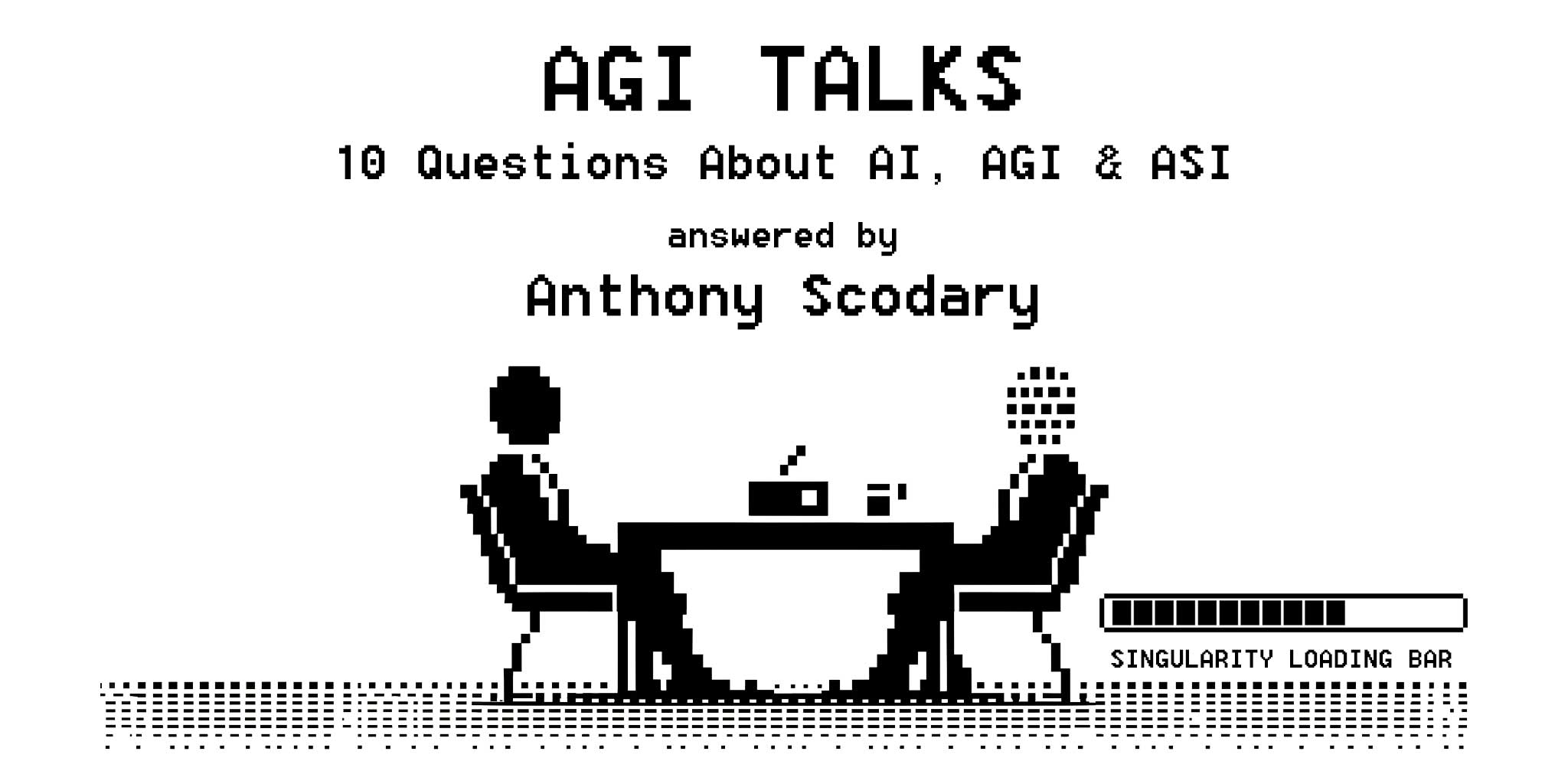Physicist and former NASA-engineer Anthony Scondary shares his vision of an AGI-powered future that enables a better quality of life for all people.

About Anthony Scodary

Anthony Scodary is the co-founder of Gridspace, a speech and language AI company pioneering advanced voice bots for call centers. With a background at NASA's Jet Propulsion Laboratory, he contributed to significant missions such as the Curiosity Mars rover and Juno's journey to Jupiter. Anthony holds a bachelor’s in Physics and a master’s in Aeronautics & Astronautics from Stanford University. An innovator at heart, he has several patents for AI-driven speech technologies.
AGI Talks: Interview with Anthony Scodary
In the latest AGI Talks, we asked Anthony Scondary 10 questions about Artificial Intelligence (AI), Artificial General Intelligence (AGI), Artificial Super Intelligence (ASI), and the impact these technologies could have on society.
1. What is your preferred definition of AGI?
Anthony Scodary: Human intelligence isn't understood well enough to uncontroversially define tasks or tests that span the range of the human intellect. If you include emotional intelligence, mobility, common sense, and all sensory modalities, it's even harder to define AGI via a battery of tests. Instead, I prefer an argument from François Chollet, whom I greatly admire on this topic, that we'll know we have AGI when more than 50% of the gross domestic product is generated by virtual agents.
2. …and ASI (Artificial Superintelligence)?
When AI appears to be improving exponentially, the difference between ≥ and > is trivial. By the time we know we have AGI, we'll have ASI. It's like asking when a bullet train will arrive at or pass through Tokyo.
3. In what ways do you believe AI will most significantly impact society in the next decade?
Economists look at automation through the lens of productivity growth per sector. We can get a hint of what's to come by looking at one of the most-heavily automated sectors: agriculture. According to the Kansas City Fed, in 1900, 37.9% of the U.S. labor force worked on 5.7 million farms to support 76 million consumers, a ratio of 13 consumers per farmer. By 2017, with agriculture contributing just 0.9% to GDP and 1.1% of the workforce on 2 million farms, the ratio dramatically increased to 159 consumers per farmer.
This automation has made Americans richer, better-fed, and more-urbanized. We can reframe the question as, what would happen in the next decade if the same degree of automation was experienced in US knowledge work? We can expect another realignment of labor sectors, notably creating new knowledge work that's less automatable. My company, Gridpsace, works in the contact center space, which currently employs approximately 3 million people in the US. Many customer service jobs will likely evolve to be more personal and better-trained, as the more menial aspects of the jobs (recorded statements, reminders, forms) are automated. This should ultimately result in better service to consumers and new opportunities for workers that previously were uneconomical.
4. What do you think is the biggest benefit associated with AI?
Better quality of life for all people.
5. …and the biggest risk of AI?
Overreliance relative to the maturity of technology. Humans have never encountered a technology so capable of over-representing its own strengths and concealing its own weaknesses. A large amount of our work at Gridspace is to build machines that aren't simply smart but reliable and controllable.
6. In your opinion, will AI have a net positive impact on society?
Yes.
7. Where are the limits of human control over AI systems?
The more we relinquish control to automation of any kind, the more sophisticated our monitoring and measurement becomes. This is true in manufacturing and agriculture today, and will increasingly be true with knowledge work.
8. Do you think AI can ever truly understand human values or possess consciousness?
I don't think any human will ever truly understand our own values. It's a problem we've been wrestling with for thousands of years.
9. Do you think your job will ever be replaced by AI?
I'm the most replaceable person on the planet. My labrador retriever is gunning for the job.
10. We will reach AGI by the year…?
Most major technological transformations (gas-powered cars, electrical lighting) have followed a 50-year S-shaped adoption curve. Based on my economic definition of AGI, I'll estimate 2048.